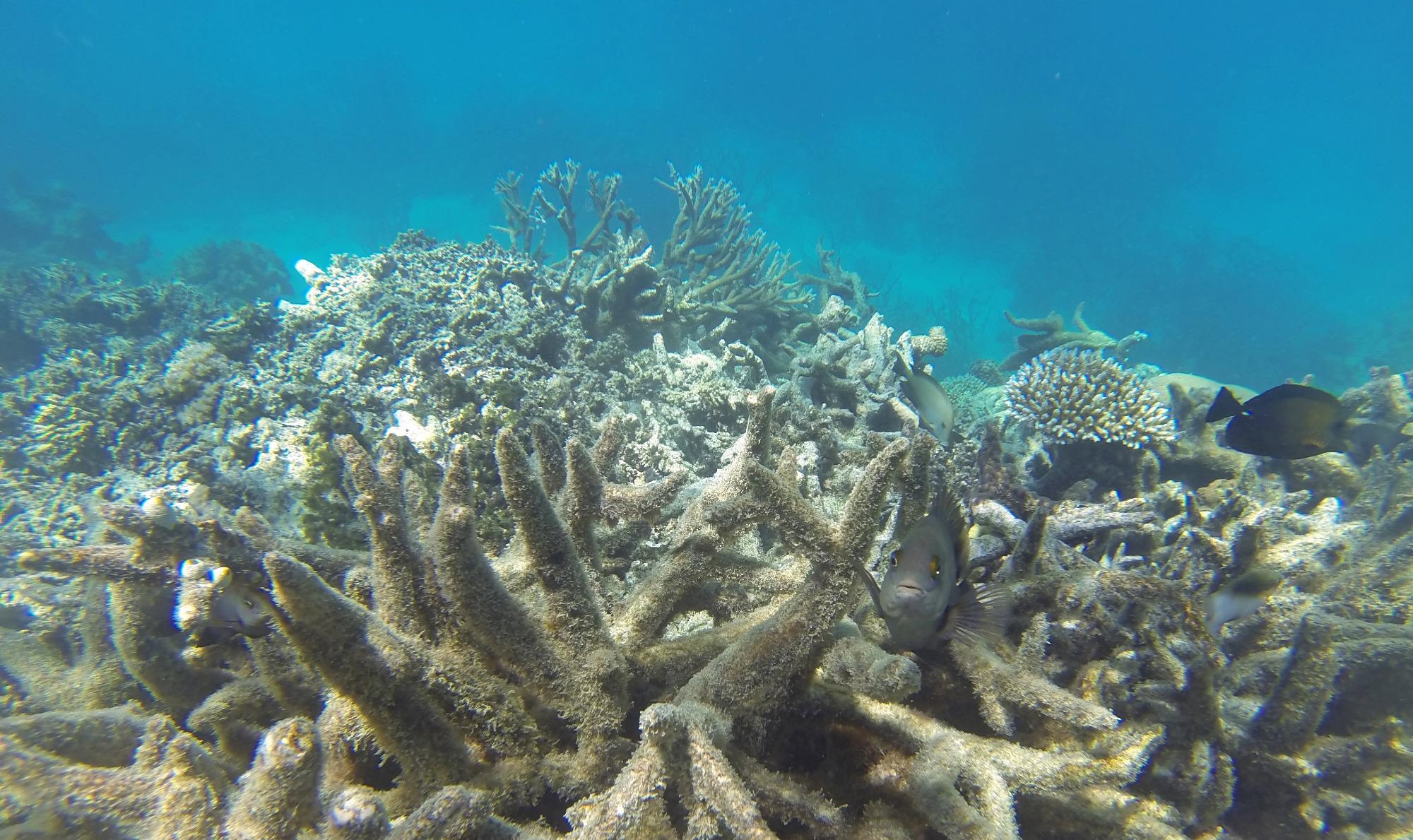
Image Credit: Shutterstock.com / Darkydoors
New research shows that the window of opportunity available to rescue corals is rapidly closing.
The double-punch of global warming and the increased acidification of the oceans has placed the world’s coral reefs in severe jeopardy. These stressors cause ‘bleaching events’ in which coral expels algae from its tissues needed to sustain it. Corals can recover from these events, which turn their tissues white, but as the period between subsequent occurrences diminishes, the chances of recovery are slim.
The continuing loss of these organisms, which provide essential habitats for a wealth of species, could majorly hit the diversity of marine animals, making our oceans less varied and beautiful ecosystems.
Whilst efforts are currently underway to mitigate the effect of climate change on coral, and regrowth schemes have proved successful in some instances, knowledge of the true damage that the ongoing warming of the oceans will inflict on coral reefs is still somewhat limited.
New research projects this damage across over 200 locations, demonstrating that the majority of coral reefs will be unable to maintain the production of calcium carbonate by the year 2100. This is significant as this material forms the skeletal structure of corals providing support and enabling growth.
The investigation also shows that the growth rates of corals indicate that whilst there is still time to save reefs, that time is dwindling rapidly.
The threat posed by climate change to coral reefs is already very apparent based on recurrent episodes of mass coral bleaching. But changing environmental conditions will have other far-reaching consequences.
Professor Morgan Pratchett, ARC Centre of Excellence for Coral Reef Studies (Coral CoE), James Cook University (JCU)
Alongside Professor Ryan Lowe, The University of Western Australia (UWA), and Dr. Scott Smithers (JCU), Pratchett is the author of a paper published in the journal Proceedings of the National Academy of Sciences1 that documents the findings of this international collaboration of scientists.
The paper’s lead authors were Dr Christopher Cornwall, Victoria University of Wellington, and Dr Steeve Comeau, Sorbonne Université CNRS Laboratoire d’Océanographie de Villefranche sur Mer.
“Our study shows changing environmental conditions challenge the growth of reef-building corals and other calcifying organisms, which are important in maintaining the structure of reef systems,” Prof Pratchett said. “Saving coral reefs requires immediate and drastic reductions in global carbon emissions.”
Coral’s Future in the Balance
The reason that climate change’s effects on coral reefs are so wide-reaching is related to the fact that these structures exist in a delicate balance. A wide range of species is responsible for forming the delicate ecosystems represented by reefs and for their maintenance and construction.
Primary amongst these organisms are coralline algae, which acts as the cement which binds the reef materials together into a sturdy structure. This binding protects the reef and corals from being broken up or dislodged by intense wave action.
While the responses of individual reef organisms to climate change are increasingly clear, this study uniquely examines how the complex interactions between diverse communities of organisms responsible for maintaining present-day coral reefs will likely change reef structures in the future.
Professor Ryan Lowe, The University of Western Australia (UWA)
Preparing for the Worst-Case Scenario
To conduct their research, the international team investigated a total of 233 locations, which encompassed 183 individual coral reefs. Of these reefs, 49% were located in the Atlantic Ocean, 39% were found in the Indian Ocean, and the Pacific Ocean was home to 11%.
To calculate how these corals will react to climate change, the team considered coral growth due to ocean warming and acidification under different types of carbon emission models, from three Intergovernmental Panel on Climate Change emissions scenarios. These scenarios ranged from low risk to intermediate risk, through to worst-case scenarios.
The team found that some reefs could possibly keep up with rising sea levels by growing in the intermediate case, but not for a prolonged period. Further, their research showed that if ocean warming continues at current rates, more marine heatwaves and, in turn, more bleaching events will surely ensue. The result showed that even when considered alongside the low-impact scenarios, their data shows that reefs will experience severely stunted growth.
“While 63% of reefs are projected to continue to accrete by 2100 under the low-impact pathway, 94% will be eroding by 2050 under the worst-case scenario,” Dr. Cornwall says. “And no reef will continue to accrete at rates matching projected sea-level rise under the medium and high-impact scenarios by 2100.”
“All reefs around the world will be eroding by the end of the century under the intermediate scenario,” concludes Smithers. “This will obviously have serious implications for reefs, reef islands, as well as the people and other organisms depending upon coral reefs.”
References
1. Cornwall. C. E., Comeau. C., Korndere. N., et al, [2021], ‘Global declines in coral reef calcium carbonate production under ocean acidification and warming,’ PNAS, [DOI: 10.1073/pnas.2015265118]
Disclaimer: The views expressed here are those of the author expressed in their private capacity and do not necessarily represent the views of AZoM.com Limited T/A AZoNetwork the owner and operator of this website. This disclaimer forms part of the Terms and conditions of use of this website.